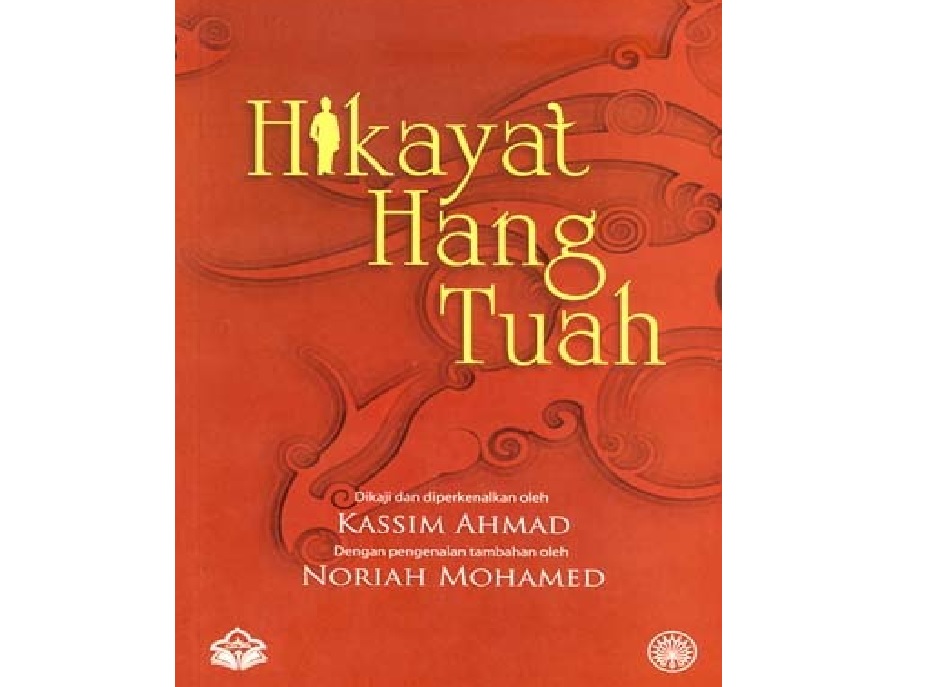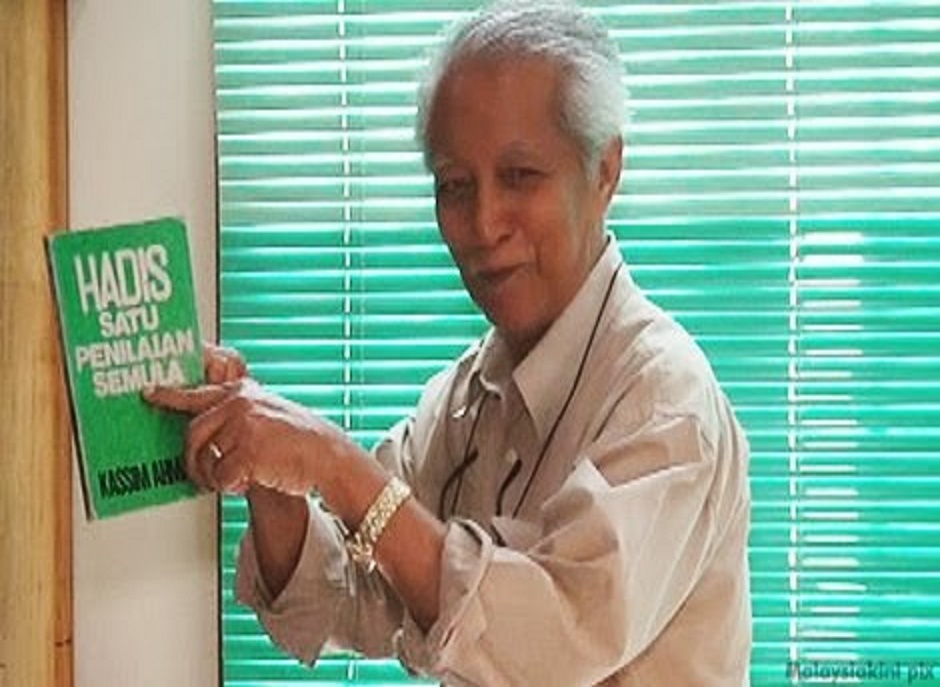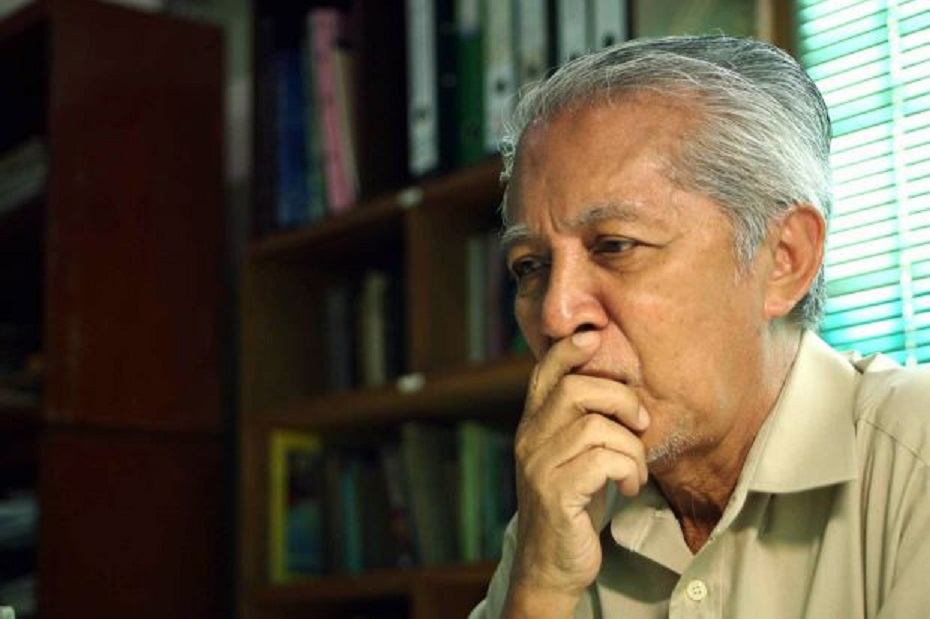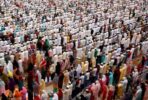RENOWNED Malay author and intellectual Dr Kassim Ahmad, who just turned 84 last month, died at 10am today at Kulim Hospital, where he had been in a coma since yesterday due to lung problems. His son, Ahmad Shauqi Kassim, confirmed the death. Kassim is survived by his wife, son, two daughters and 11 grandchildren. The Kedah-born author, who was labelled a Quranist and a bane of the religious authorities, had been warded since last month for lung problems. He was known as a thinking Muslim who dared voice and publish his non-mainstream views on Islam. He earned a reputation as a strong fighter for his continued fight against religious authorities at an elderly age.
Two months ago, Kassim won a three-year legal battle against religious authorities for allegedly insulting Islam and disobeying the Federal Territories fatwa at a seminar in February 2014, where he had made remarks about religious scholars. Despite his frailty and weak health, he travelled to and from his home in Kulim and the shariah High Court in Putrajaya to defend his innocence until the prosecution finally dropped the charges against him. When the case was ongoing, Kassim vowed to fight to the end, telling the now-defunct The Malaysian Insider portal in a January 2015 interview that he believed he would win. He had confidence in his case, always speaking his mind whenever he talked about the authorities, even when they were after him.
“From my experience, religious people in the country are narrow-minded. This was never in Prophet Muhammad’s nature. They are doing what the Prophet never did in his life. It is as if they are talking on God’s behalf and nobody dares question them,” he said in the 2015 interview. Born on September 9, 1933, Kassim was active in the leftist Socialist Club as a student at Universiti Malaya in Singapore. He and several other UM students challenged the teaching and learning of Malay studies at the university, calling for a more open system. He grabbed national headlines in the 1950s with his dissertation on the characters of the popular Malay literary classic, “Hikayat Hang Tuah”, in which he hailed Hang Jebat as the real hero.

Kassim worked as a Dewan Bahasa dan Pustaka research officer after university. During his time there, he worked on stories about Hang Tuah, the legendary figure in Malay literature. He next became a Malay Studies lecturer at the University of London’s School of Oriental and African Studies for four years. He turned down a permanent job at the school to return to Malaysia due to his interest in politics. He was an active member of Parti Sosialis Rakyat Malaysia (PSRM) under Ahmad Boestaman while working as a temporary teacher at Penang’s SM Abdullah Munshi. His services were terminated in 1969 after he distributed socialist party literature to his students.
He spent about four years detained under the Internal Security Act while with PSRM and was released about the time Dr Mahathir Mohamed, a good friend, became prime minister. Kassim served stints in politics, and joined Umno after PSRM. He was also a freelance writer, translator, journalist, and teacher. Kassim, who authored some 20 books and countless essays and poems, wrote much about Islam. “Hadis: Satu Penilaian Semula” (Hadith: a Re-examination) got him labelled anti-hadith or Quranist. In the book, he challenged the infallibility of the purported words of Prophet Muhammad, causing it to be banned by the National Fatwa Council.

It was his views in this book which he repeated at the February 2014 lecture that landed him in trouble with the religious authorities. In a lecture titled, “The Nation’s Direction in the Next Thirty Years”, Kassim accused a class of ulama (religious scholars) of controlling Islam in Malaysia through a “priesthood caste” system and questioned the use of the hadith (the Prophet’s sayings and actions) to explain Quranic teachings. He also argued that hair was not part of the “aurat” (parts of the body which need to be covered according to Islam). Kasim debated his views with many, leading him to write and publish “Hadis: Jawapan Kepada Pengkritik” (Hadith: Answers to Critics) in 1992.
His other works include two major philosophical essays – one is a criticism of Marxism in 1975 and the other on the meaningfulness of life in 1997. He also edited several classical Malay works. Most of his works are in Malay. One of his last projects was translating the Quran into Malay. On his blog, he listed his interests as literature, philosophy, politics, and religion. His favourite films were “High Noon”, “Rebel Without a Cause, and “Antara Dua Darjat”. In music, he was a fan of the “keroncong” and Beethoven.
Kassim, who headed the Malaysian Quranic Society, listed the Quran as one of his favourite books. His favourite writers were Shakespeare, Pramoedya Ananta Toer, and Keris Mas. He was awarded the honorary Doctorate of Letters by the National University of Malaysia in 1985 and the Poetry Award of the Malaysian National Writers’ Association in 1987. – October 10, 2017.
Source: The Malaysian Insight







